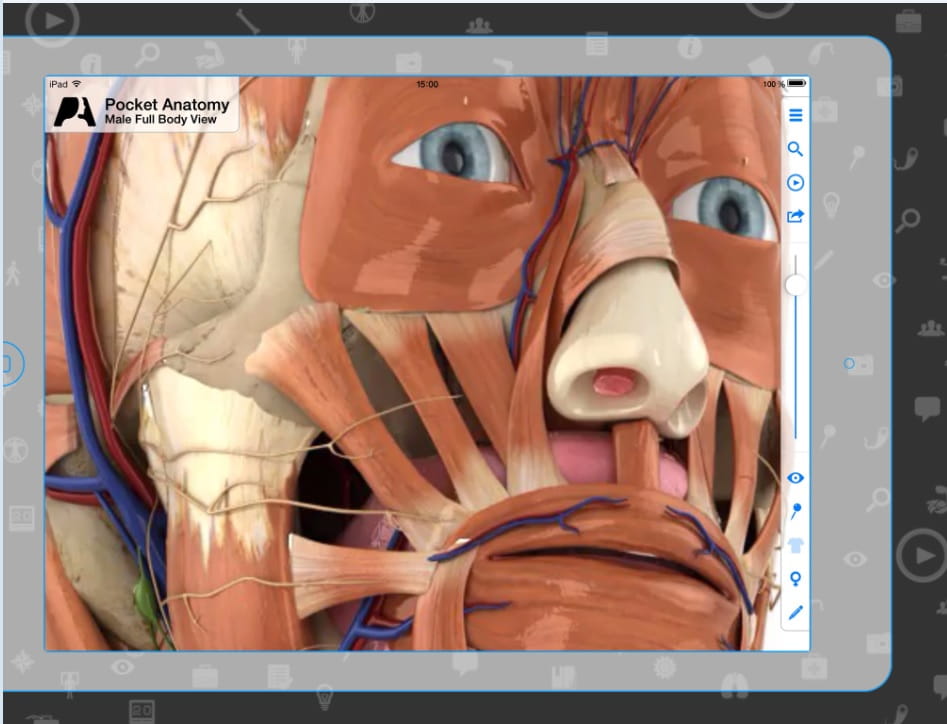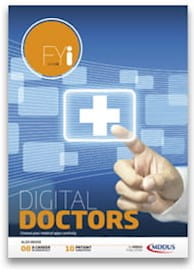
THE world of medical apps is an ever-expanding one populated by both the ingeniously innovative and the downright dodgy.
Who knew you could cure acne using the light from a mobile phone or augment breast size by blaring baby cries out of your device 20 times a day? Others claim to allow users to select the sex of their baby by entering certain times, dates and phases of the moon.
While the market is awash with apps making all manner of dubious medical claims, there are many that have proved popular with clinicians. There are tools to assist diagnosis, staging or treatment (such as calculating fluid requirements for burns patients), as well as countless others that can help monitor and promote general health and wellbeing.
Quality markers
With so much choice, it is important that doctors take a cautious approach, researching as much as possible the app’s origins and reliability and looking out for positive/negative reviews by fellow healthcare professionals.
One helpful guide is to look out for the CE mark, indicating it complies with essential criteria set out under European law. This applies specifically to apps with a medical purpose (i.e. those supporting diagnosis or clinical decisions) which are defined by law as "medical devices" and regulated in the UK by the MHRA.
The first app to be officially registered by the MHRA was Mersey Burns just over three years ago. It is a popular clinical tool (available free for Apple and Android devices) for estimating burn area percentages, prescribing fluids using the Parkland formula, and recording patients’ details (being mindful of confidentiality). It was developed by plastic surgeons at St Helen’s and Knowsley NHS Trust and has won a number of innovation awards as well as favourable reviews.
In its April 2015 guidance Using apps in clinical practice, the Royal College of Physicians of London says doctors should not use medical apps, including web apps, that do not have a CE mark. It is worth ensuring that the specific version of the app you are using is CE marked, rather than relying on the general information in the online app store.
Apps which do not require a CE mark are those which do not use patient-specific information and only perform administrative functions. This might include those offering general guidance or supporting training.
While it is a useful indicator, the RCP goes on to state: "Unfortunately, even if an app has a CE mark, that does not mean that it meets best practice, has been tested for accuracy or benefits in clinical use, or is applicable to the patient/decision for which it is being used."
Most importantly, the College adds: "Always exercise professional judgement before relying on information from an app."
Popular apps
So what are some of the commonly used apps for doctors on the market? Those listed below have received positive reviews, but there are many others available. Doctors are advised to carefully consider any app before downloading and using it in clinical practice. The following are in no particular order (MDDUS doesn’t endorse or approve any app):
NICE (National Institute for Health and Care Excellence)
Free; for Apple and Android devices
Access all NICE guidance on a variety of conditions and diseases as well as on public health topics such as smoking cessation and diabetes prevention. Browse by topic or type of guidance, search for keywords, or revisit bookmarked pages. Specific chapters or an entire guideline can be easily shared by email.
NICE BNF
Free; Apple and Android
Available to NHS staff in England, Scotland and Wales, this offers a useful offline reference for the British National Formulary. There is up-to-date practical information on prescribing, dispensing and administrating medicines that can be easily searched or browsed. An NHS Athens account is required to activate the app. Described as useful by many, although some recent reviews have complained of technical glitches/crashing.
MIMS (Monthly Index of Medical Specialties)
£9.99 for a 12-month subscription to content updates; Apple and Android
MIMS is described as the essential prescribing and drug reference guide. For over 50 years it has provided medical professionals with information on medicines licensed in the UK, including drug dosages, warnings, contraindications and adverse events. It is said to be accessed over 450,000 times every month by UK GPs. The app downloads the whole database to your device (no internet access required) which can be easily searched from anywhere in the app.
SIGN (Scottish Intercollegiate Guidelines Network)
Free; Apple and Android
This app was downloaded more than 8,000 times in its first two months of release. It features Quick Reference Guides (QRGs) on a selection of SIGN guidelines, including those for the management of atopic eczema, rheumatoid arthritis, venous thromboembolism, and psoriatic arthritis in adults. The QRG content is enhanced with material from the main guideline and online resources, linked to the SIGN website. Each new SIGN QRG will be added as an update as it is published, building into a complete library. The app also features keyword search, bookmarking and in-app access to the SIGN website.
Patient.co.uk
Free; Apple and Android
Search their database of more than 900 patient information leaflets on health, conditions and diseases and quickly locate health services in your area (England only). Browse by category, bookmark and share/print/ email favourites. Concise summaries and diagrams can prove helpful when explaining conditions to patients in plain English.
Pocket Anatomy
£7.99; Apple
View full 3D male and female body anatomy with 10 layers of musculoskeletal, neurovascular and internal organ content (accessible without an internet connection). There is a note-taking function and quizzes to test learning.
CliniCalc Medical Calculator
Free (£3.99 for full version); Apple
Handy for calculating formulas, scores and classifications from simple Glasgow Coma Score reminders to the CHADS2 stroke risk score, as well as visual aids for Mallampati classification. Categorised by specialty, it lets users store their favourite formulas and offers background information.
Touch Surgery, Surgical Simulator
Free; Apple and Android
Developed by surgeons, this app breaks down operations into their component steps and decision points. Users can engage with interactive, 3D simulations and practise techniques with the ability to carry out an "unsupervised" operation. It also lets you test yourself and track progress.
GPnotebook
One-off payment of £21.99; Apple
This "online encyclopaedia of medicine" offers quick access to a database holding more than 26,000 pages of information. Users can make annotations and search the resource by keyword or browse by topics such as "cardiovascular" or "chest medicine". GPnotebook account holders can synchronise annotations and other personal data held in the app with their online account.
Joanne Curran is an associate editor of FYi
This page was correct at the time of publication. Any guidance is intended as general guidance for members only. If you are a member and need specific advice relating to your own circumstances, please contact one of our advisers.
Read more from this issue of FYi

Save this article
Save this article to a list of favourite articles which members can access in their account.
Save to library
